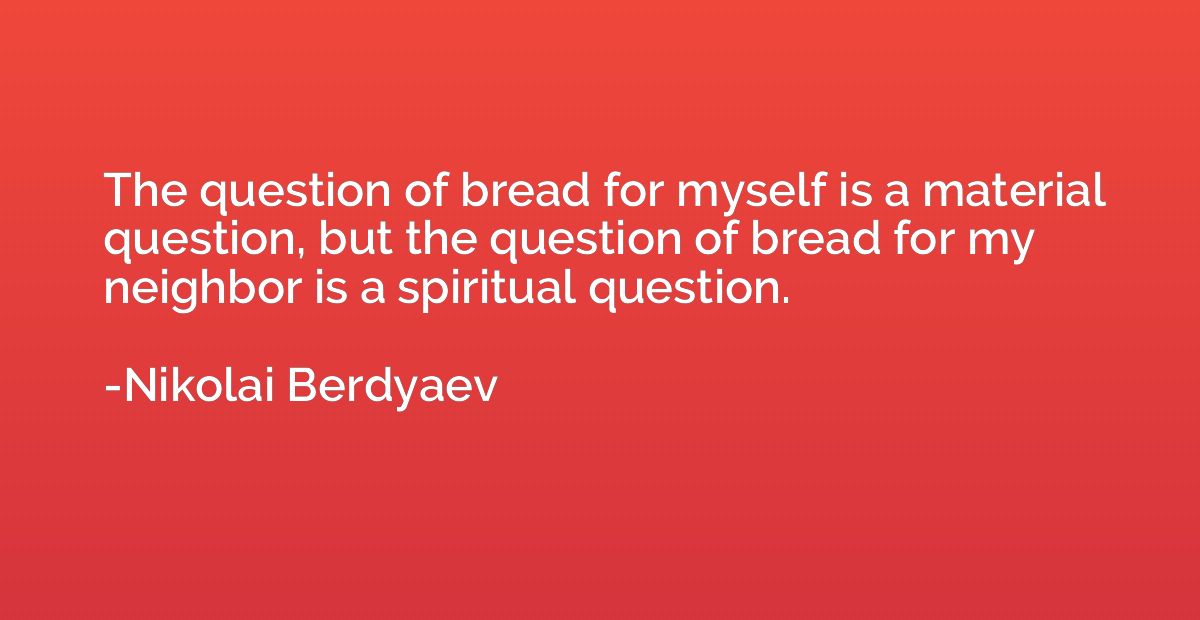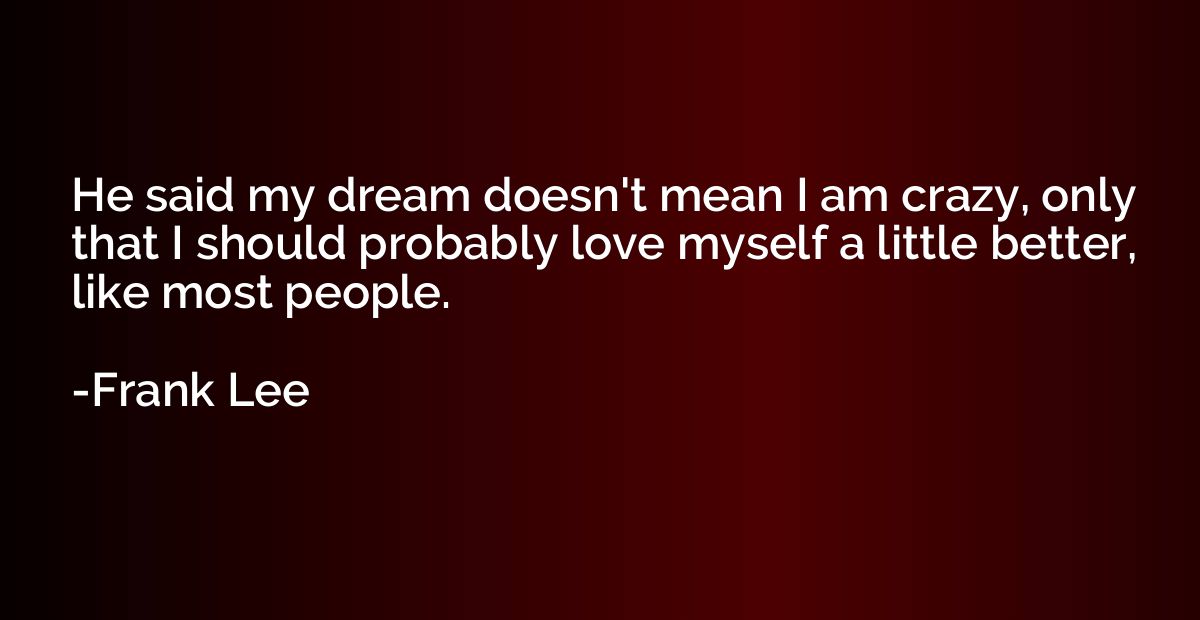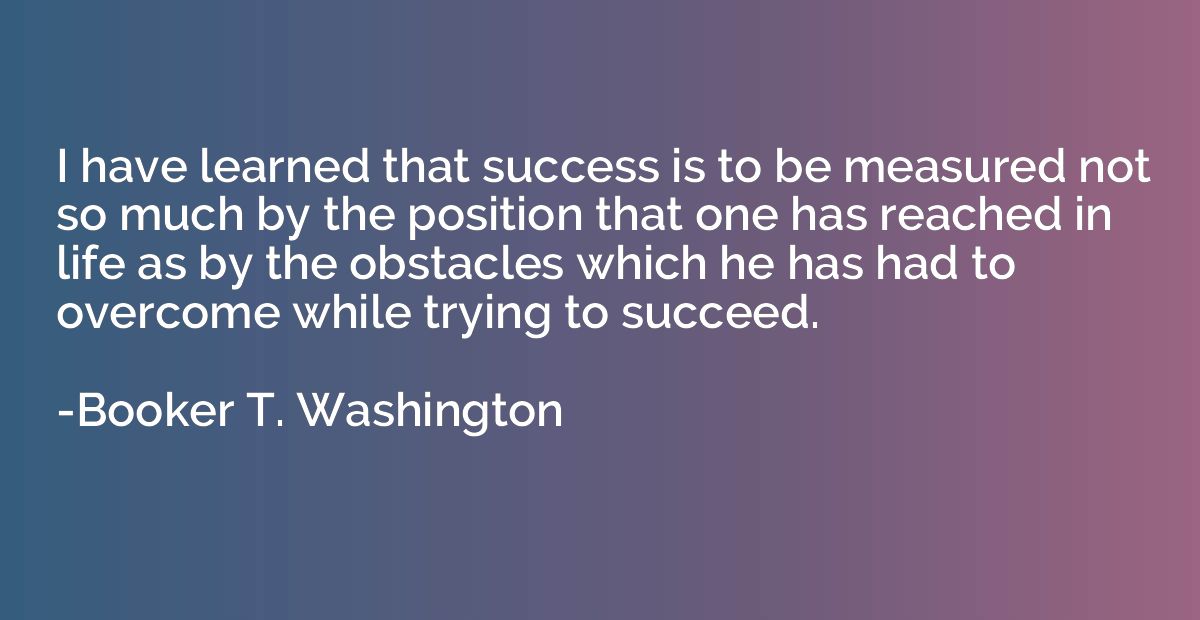Quote by Nikolai Berdyaev
The question of bread for myself is a material question, but the question of bread for my neighbor is a spiritual question.

Summary
This quote suggests that while the need for food is a practical concern for oneself, providing sustenance and support for others goes beyond mere material necessities. It implies that compassion, empathy, and communal responsibility are essential to the well-being of society. By framing the act of feeding one's neighbor as a spiritual question, it highlights the moral and ethical aspect of helping others and emphasizes the importance of generosity and kindness towards those in need.














